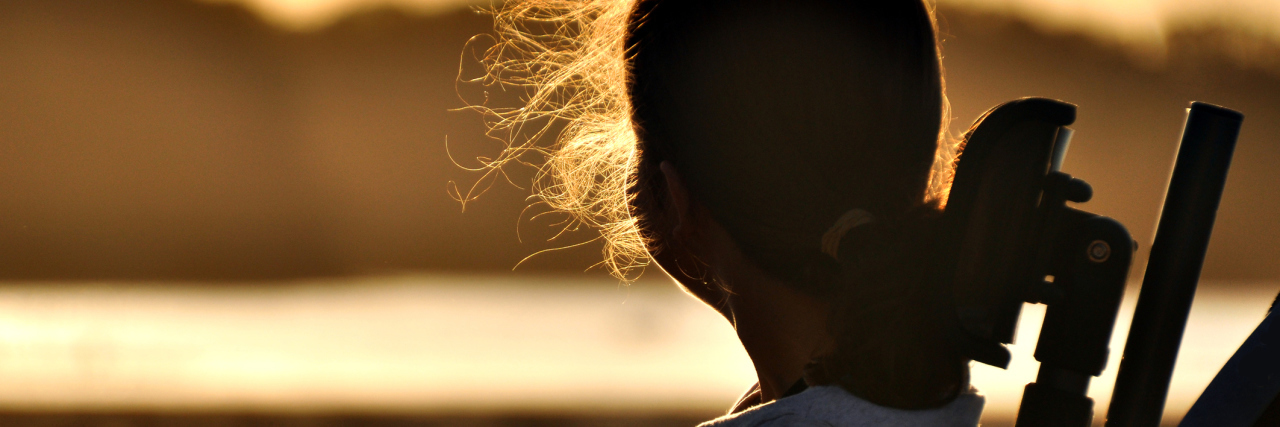In different disability circles there seems to be a conversation about “preferred language.” For example, many of us parents feel strongly about “people first language” (i.e. “a person with a disability”), and most professionals are taught to use it. However, almost all my friends who have disabilities prefer “identity first language” (i.e. “disabled person”). And before you say, “that’s terrible, a person is a person first,” let’s remember we do not get to tell a group of people we don’t belong to what terminology they should identify with.
I have also noticed children tend to identify with the language their parents use because that’s what they have primarily heard most of their lives from their parents. As they get older and begin to connect with people in their own communities, often those ideas change and they adopt the language used in their community. Which makes sense.
This leads to the next question I’ve had to think through: “Should I use ‘special needs’ or ‘disability?’”
To me the answer is simple: a large majority of adults with disabilities have made it clear they prefer the term “disability” and do not like the term “special needs.”
It really shouldn’t matter what I think or what you think — if disabled adults are saying, “Hey, say ‘disability,’ we find the term ‘special needs’ unacceptable.” Then it should be so. Again, as an able-bodied adult, I do not get to tell a community of people what terms they should use for their identity.
One of the best things I have done for my daughter, who has cerebral palsy, is get her connected with people in her community. Two of my closest friends are twin sisters with cerebral palsy, and they have become Nina’s mentors and role models.
They are not the only other people with cerebral palsy she knows. At our former church, one of my good friends also has cerebral palsy, and there was a young man with CP as well. The pastor I most respect (aside from my husband) has cerebral palsy, and I find great encouragement in his teaching. So my daughter has been around people who are like her. She’s had the opportunity to ask, “Do other people sometimes treat you like a baby?” “Has anyone ever pushed you in your wheelchair without asking?” “Has anyone ever called you r*t*rd*d?”
Conversation that — although she is comfortable having them with me — she’s keenly aware the understanding and connection to people who are like her is much deeper. She said to me once, “Mom, I know you love me, but you don’t have a disability, so it’s different.” Basically she was saying, “Your life experiences are different, Mom, and you can sympathize, but you cannot understand.” I think that’s fair and reasonable. I can understand that.
Recently, I asked her about what terminology she preferred.
“I don’t like either.”
“What do you mean?”
“Well, why don’t we just call it ‘cerebral palsy’ or ‘CP?’”
“What about when I am talking about both you and your sister, because she has Down syndrome, and also, I write about it. Would you prefer ‘special needs’ or ‘disabled?’”
“Not ‘special needs.’ It makes me feel like a baby, and it feels like being made fun of. And not ‘disabled’ because it makes me feel like I am ‘less than’ other people.”
“Is there another option or do you just want me to say CP and Down syndrome?”
“Well you can say I have a disability.”
“But not ‘disabled?’”
“No, ‘disabled’ makes me feel like I am less than other people because I am not able, but disability feels different.”
“Why do you think it feels different?”
“Disabled is like you are disabled, but disability is like you have a disability but you are still a person.”
“OK. That makes sense. That is what people refer to as ‘people first language.’”
“What’s that?”
“You refer to the person first and disability second. It is not what defines your person. So you are a girl with a disability or a girl with cerebral palsy, but it is not who you are.”
“I don’t get it.”
“Well, it’s like –”
“Mom, just say disability.”
“Because it’s something you have and not who you are?”
“Yeah, yeah. Are we done?”
“Yes, thank you.”
So here is where we stand: My daughter who has cerebral palsy prefers people first language, and she prefers the term “disability.”
I will respect her choices and this is the language we will use. I know part of why she identifies with the term disability is because of the connections she has with people in her community who use this language. Perhaps some day she will prefer to use “identity first,” but for now, we know the language to use.
As for my youngest daughter, who has Down syndrome, I will use the language preferred by adults with Down syndrome.
I often say I want people to listen to my children and respect their words and what they have to say. I must lead by example and listen and respect what the disability community has openly expressed about their own identity and preferences.
Moving forward, I will use the term “disability.”
Thinkstock image by rankiefotografie

